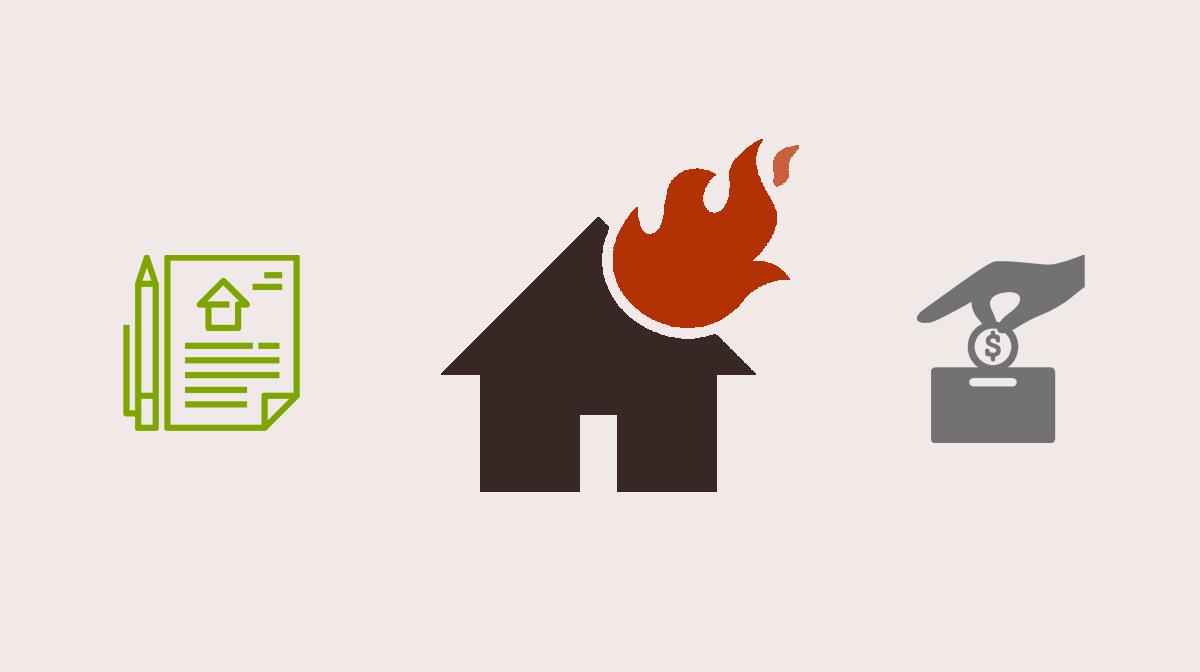I've met plenty of folks, both landlords and tenants, who had some pretty strange beliefs about what was legal or illegal in Chicago apartments. Today I've taken on 10 of these myths and misconceptions about renting and broken them down chapter and verse to let you know which ones are true and which are false.
If you've got a myth about apartment life that you want me to investigate, drop me a comment below or on our Facebook page and I'll look into it for a follow up article.
1. It's illegal to put things in someone's mailbox if you're not a USPS postal carrier.
Status: True!
According to whom? US Congress, 18 USC 1725
Details: Mailboxes are actually property of the US Postal service. Placing something in someone's mailbox that doesn't have postage on it is a felony offense. This is to prevent mail theft and mail fraud, although private postal services like UPS and FedEx have been fighting the law for many years.
Since when? 1934.
Penalty: At least $5000 per occurrence for individuals, $10,000 for businesses.
2. It's illegal to leave shoes in the hallway outside your apartment.
Status: True!
According to whom? City of Chicago existing buildings code, 13-196-080
Details: When you leave shoes, strollers or other personal items in the hallway, it can block others' path to escape during a fire. Blocking hallways in this way is a violation of fire codes. (It's also a great way to get your stuff stolen.)
Since when? Before 1990.
Penalty: Your landlord may be fined and pass the fine on to you.
3. It's illegal to put too much trash in a dumpster.
Status: True!
According to whom? City of Chicago health & safety ordinance 7-28-261
Details: If you pile trash high enough in the container that the lid won't fully close, you're setting up a situation that attracts rats, bugs and raccoons. If the dumpster is so full that you can't put your trash inside, let your landlord know immediately. If it's an ongoing problem, you can report your landlord to the city.
Since when? At least 1994.
Penalty: Your landlord will get a ticket and may pass the fine on to you.
4. It's illegal to give your landlord a postdated rent check.
Status: False!
According to whom? The State of Illinois, Criminal Code 720 ILCS 5/17-1B
Details: Some landlords will ask that you provide them with twelve postdated rent checks, one for each month, at the time you sign your lease. While this is really annoying if your money is kept in many different bank accounts, it gives some landlords peace of mind knowing that you're already committed to those payments. However, an unscrupulous landlord can deposit those checks at any time, and I don't know a lot of renters who keep a full year worth of rent in their checking accounts.
If you give someone a postdated check and it bounces when deposited - regardless of the date - you have broken the law. However, if the check clears, you're all good. If you bounce a check, you need to make good on it within 30 days to avoid penalty.
Since when? At least 2011.
Penalty: Anywhere from $100-$1500 plus court costs.
5. It's illegal to smoke in your apartment.
Status: False! (with some restrictions)
According to whom? City of Chicago clean indoor air ordinance
Details: You cannot smoke or vape in apartment hallways, lobbies or common areas (and that includes the yard!) but you can smoke and vape within your own apartment provided that your lease allows it. Note that if you have a license to consume medical marijuana but your lease bans smoking, you must choose another delivery method such as eating it.
Since when? 2014
Penalty: $250-2500 for smoking in common areas. Eviction for smoking in apartments that ban smoking in the lease.
6. If more than two unmarried women live in an apartment together, it's considered to be a brothel.
Status: False!
According to whom? There are no brothel laws in Chicago.
Details: The myth of the brothel law has been flying around among tenants for decades. It may stem from colleges that restricted housing for female students when they were first allowed to attend universities. However, there is no evidence that any city or town has ever actually enacted a brothel law that applies specifically to unmarried women.
In fact, in Chicago, refusing to house someone based on their marital or familial status is a violation of fair housing law. However, Evanston does currently have a very controversial law on the books that prevents more than 4 unrelated individuals from living in the same apartment together.
7. It's illegal to post political signs at your apartment building.
Status: False!
According to whom? State of Illinois, City of Chicago, multiple sources.
Details: The state can't make any laws that ban the posting of political signs on private property, as it's a violation of free speech laws. So you can temporarily post a political sign for your favorite candidate inside your apartment as long as you don't break any lease conditions about attaching things to the walls.
You can't post them on public property, so don't put them in the parkway. You can put them in the yard of your apartment building but they may be removed by your neighbors. Note that your landlord can also post signs on the property but there's nothing stopping you from removing them.
Penalty: None.
8. It's illegal to let your kids play in the halls or yard after dark.
Status: True!
According to whom? City of Chicago Curfew ordinance 8-16-020
Details: Children under age 12 must be at home after 8:30pm Sunday through Thursday and after 9pm on Friday and Saturday. For teens up to age 16, it's 10pm Sunday to Thursday and 11pm Friday and Saturday. If a parent or guardian is with the child/minor they're within the bounds of the law. If they're unsupervised and someone complains, they would be breaking the law.
Since when? Curfew laws have been on the books for years, but were most recently revised in 2015.
Penalty: $500 maximum fine plus community service for the parent.
9. It's illegal to run a business out of your apartment.
Status: True! (if you don't have a license)
According to whom? City of Chicago Home Business ordinance 4-6-270
Details: First of all your landlord can ban home-based businesses outright. So can a condo association if you're living in a rented condo.
Second, the city has a special business license for home-based businesses called the "Regulated Business License - Home Occupation." If you're freelancing or working remotely for a business with headquarters elsewhere, you're all good. If you're running a licensed day care out of your apartment (and your lease either allows or says nothing about it) you're all good. If you're home-brewing for private consumption and not selling the output, you're good. If you're owning and running your own business from your apartment you need to have a license. The city restricts what kind of work can be done out of the home, how many employees you can have, how much square footage you can dedicate to the business, signage, and the use of building entrances.
Since when? At least 2012
Penalty: $250-500 fine, Eviction if you are violating the lease.
10. A landlord must disclose the presence of mold in your apartment when you sign the lease.
Status: False!
According to whom? No one, there is no law about it.
Details: Landlords must disclose knowledge about lead based paint (Federal law), radon (Illinois law), heating costs (Chicago law), and provide information on how to handle bedbug infestations. However, there are no laws pertaining to the disclosure of mold in apartments or in homes for sale.
Some real estate agents will use mold disclosures as part of their standard paperwork when representing a seller or landlord, but it's only done to cover their own butts. However, if your apartment does have mold when you move in your landlord has a duty to get rid of it.
Penalty: None for failure to disclose. Fines may be assessed if a landlord does not clean up mold within a reasonable time.
RentConfident is a Chicago startup that provides renters with the in-depth information they need to choose safe apartments. Help us reach more renters! Like, Share and Retweet us!






